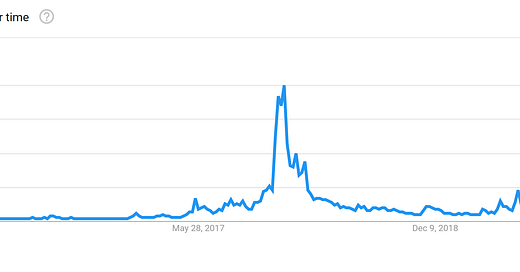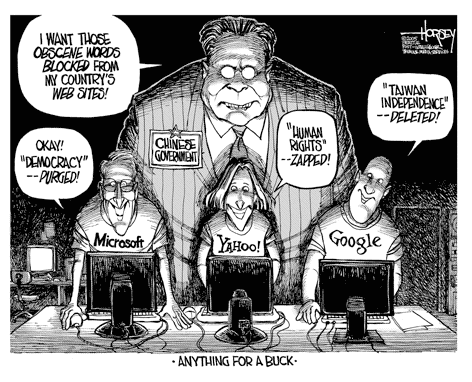Last Sunday we had the 4rd highest weekly ever. Yesterday, we had the 3rd highest weekly close ever. We also had the 13th highest daily close ever on November 12, 2020. We’re getting very close to the all time highs established in the heady 10 days back in December of 2017.
The difference this time is that the ecosystem is very different and the market isn’t nearly as irrational. Google searches for Bitcoin were going crazy back in December 2017, whereas this time, there are few, if any searches. Retail, in other words, hasn’t entered yet with their customary FOMO.
Instead, we are seeing an increasingly mature ecosystem of a diverse set of exchanges, custodians and multisig frameworks. This has led to institutional investment, including many billionaires who are more comfortable with investing. We’re also seeing more development of second layers and have a bigger diversity of hardware wallets that make self-custody safer and easier.
Most importantly, Bitcoin’s use-case is so much more clearer than it was in 2017. No longer are we debating about using Bitcoin as a method of payment, but increasingly, people are recognizing its importance as a store of value. This can be seen in Wyoming senator-elect Cynthia Lummis’s interview with CNBC. Bitcoin has proven its use-case in being a hedge against central bank money-printing.
This is understandable in a world where the money supply is increasing to seemingly no end. USD M2 has increased 22% already this year and is on track to be something like 25%. If the lockdowns continue, next year won’t be much different. That’s a significant loss in savings that are much better stored elsewhere. Bitcoin is starting to become that elsewhere.
An all-time-high is a big event for Bitcoin as it tends to bring up new news coverage and start that sweet part of the bull run. For those of you that have had the fortitude to hold on to your Bitcoin during the past few years, you will be richly rewarded.
Bitcoin
Dan Held has a good list of Bitcoin FUD that he debunks here. Dan debunks such well-known arguments such as “it’s too complex,” “it’s too volatile” and “it’s bad for the environment.” As more people ask about Bitcoin in the next year, this is going to be a handy resource to have around.
There’s a guide for all the different ways to run a full node here. This includes everything from just running Bitcoin Core to getting a plug-and-play box like Nodl to setting up something like Cyphernode. Many of these have really nice stuff like explorers and mempool fee estimators, useful for creating transactions that economize. Recommended if you are looking to run a full node (which you should!)
Libnunchuk is a multisig library from Hugo Nguyen which I mentioned in this newsletter last week. They now have an open source library and support for various hardware wallets including Ledger, Trezor and Coldcard. Multisig is tricky and getting it right is not easy, so I applaud this effort. Hopefully, they can add more hardware wallets like Specter DIY and Cobo which use QR codes.
Lightning
Fulgur Ventures has a great overview of all the players in the Lightning ecosystem. I was surprised by the large numbers of apps and merchants supporting lightning. There’s over 400 supporting LN payments and over 300 apps that have been created for the network. This is all the more surprising since there’s no token sales or anything to pad these numbers. These are all genuine projects that are making something useful, unlike, say ETH.
Adam Curry has a new decentralized podcasting platform that’s in the works based on Lightning. The idea is to let you download a podcast for a payment on Lightning. This is a great idea, and if some sort of content-distribution network can be used on top to make delivery cheaper and faster, this could be the beginning of a decentralized web that we’ve all been wanting. I’d love to see this happen, especially for videos, which are currently dominated by YouTube.
Economics, Engineering, Etc.
Bitcoin Maximalist has a good article on how mining is moving away from China. The real crux of the article is that electricity costs in China are rising and the economics no longer favor the older S9’s which still have a substantial portion of mining hash power. A disproportionate amount of cheap electricity use the Antminer S9’s which are rapidly decreasing in profitability. All that money printing is having an effect and I suspect that in two years or so, the majority of mining will be outside of China.
Ethereum had a pretty major hard fork. There was a split of over 10 blocks on each side of the fork, otherwise known as a consensus failure. This caused all sorts of havoc, including the shutdown of Infura, which is the main source of blockchain information for everyone who can’t be bothered to run an Ethereum node. The reason was a patch from Geth that was supposed to prevent a hard fork wasn’t deployed to everyone and thus created the fork. Just goes to show the importance of a careful plan to deploy bug fixes.
ICO bankruptcies wade into some uncharted legal waters. ICOs had their heyday in 2017-18, but the ramifications are still coming. One aspect is that some are going bankrupt and the disbursement of funds is a necessary step in the bankruptcy process. What should ICO token holders get, in that case? The article explores the muddied waters because of the possible illegality of the ICO token offering in the first place. All those terms and conditions that claimed token holders have no recourse? A court can and may overrule those.
BCH forked on Sunday. It looks at the early going that the BCHN branch led by Roger Ver and others has prevailed over the BCHA branch led by Amaury Sechet. Pricewise, BCHN was around $240 and BCHA was around $12 as of this writing. The reason was the mandatory infrastructure funding which BCHA implemented. This is the third such split, with BCH splitting from BTC, BSV splitting from BCH and BCHA splitting from BCHN. I’d put the odds of yet another split in the next 2 years at 70%.
Another week, another DeFi exploit. Make that two. There’s a reason DeFi tokens continue to go down heavily in the midst of a boom in nearly every other market.
Podcasts
My podcast this week was with Ray Youssef of Paxful. We talked about Africa, what holds the continent back from being an economic superpower and how Bitcoin changes the equation.
I was on Tone’s podcast twice this week. The first was talking politics and the election stuff going on and the second was talking about all the news from the last few weeks, including lightning pool and the Ethereum hard fork.
What’s bigger than COVID and election news? Bitcoin, and you can learn about it from my books.
Fiat delenda est.










Janet Yellen should make things interesting for Bitcoin in 2021.